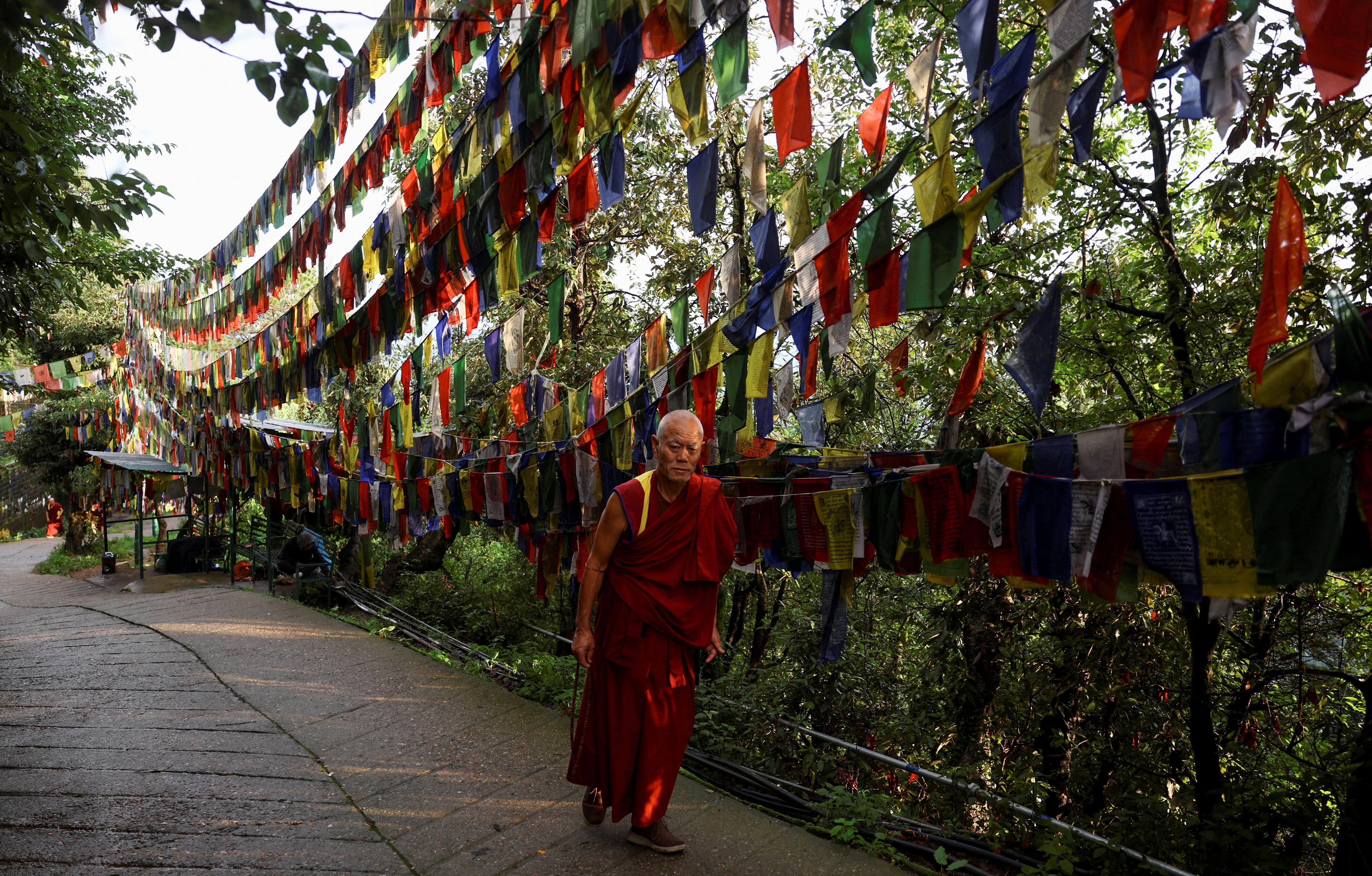The Dalai Lama has announced that he will be reincarnated, and that his successor will be chosen by his closest Tibetan advisers without interference from China.
The Tibetan Buddhist spiritual leader has previously questioned whether there should be another Dalai Lama after him, with the process to name his successor likely to be bitterly contested between the Chinese government and Tibetans in exile.
In a long-awaited statement issued to a gathering of the Tibetan government-in-exile on Wednesday, the 14th Dalai Lama said he had long believed that the future of his role should be decided by the Tibetan people themselves.
In a statement on Wednesday, he said: “In particular, I have received messages through various channels from Tibetans in Tibet making the same appeal (that the institution of the Dalai Lama continue). In accordance with all these requests, I am affirming that the institution of the Dalai Lama will continue.”
The Dalai Lama will turn 90 on 6 July and the most senior figures in Tibetan Buddhism have gathered in Dharamshala in India for a three-day religious conference building up to Sunday. He met with 11 senior Buddhist monks on Wednesday morning before his video statement on his reincarnation was made public.
The Dalai Lama said: “The process by which a future Dalai Lama is to be recognised has been clearly established in the 24 September 2011 statement which states that responsibility for doing so will rest exclusively with members of the Gaden Phodrang Trust, the Office of His Holiness the Dalai Lama.”
He added: “They should consult the various heads of the Tibetan Buddhist traditions and the reliable oath-bound Dharma Protectors who are linked inseparably to the lineage of the Dalai Lamas. They should accordingly carry out the procedures of search and recognition in accordance with past tradition. I hereby reiterate that the Gaden Phodrang Trust has sole authority to recognise the future reincarnation; no one else has any such authority to interfere in this matter.”
The Dalai Lama has repeatedly said his successor will be born outside China and urged followers to reject any candidate appointed by Beijing. The Chinese government says it is the sole body with the authority to name a successor.
China’s foreign ministry said on Wednesday the Dalai Lama’s succession through reincarnation must be approved by the Chinese government. The ministry’s remarks were in response to the Dalai Lama stating that only his non-profit institution had the sole authority to identify his reincarnation. The Dalai Lama’s succession must comply with Chinese laws and regulations as well as religious rituals and historical conventions, Mao Ning, spokesperson at the Chinese foreign ministry, said at a regular news conference.
The Chinese media have been accusing him for trying to “manipulate” the reincarnation process. The Communist Party-run Global Times wrote: “At its core, his intention remains the same – to deny the traditional religious rituals and historical conventions that have governed the Dalai Lama reincarnation system for centuries, and to manipulate the reincarnation process for his own purposes.”
The Dalai Lama, regarded as the living embodiment of Avalokiteshvara or Chenrezig – the patron saint of Tibet – has served as the spiritual leader of Tibetan Buddhism since the 15th century.
In 1959, after a failed uprising against Chinese rule, the 14th Dalai Lama fled Tibet and sought asylum in India, sparking a wave of Tibetan exile and the formation of a government-in-exile in Dharamshala. His flight followed nearly a decade of rising tensions after China annexed Tibet in 1950. China regards the Dalai Lama as a separatist. But he remains a powerful symbol of Tibetan identity.

Since the 1950s, Beijing has tightened its grip on Tibetan religious affairs, most notably by abducting the six-year-old Gedhun Choekyi Nyima – 11th Panchen Lama in 1995, shortly after he was recognised by the Dalai Lama. The Panchen Lama is the second-highest authority in Tibetan Buddhism after the Dalai Lama.
Gedhun Choekyi Nyima has not been seen since. In his place, China installed its own Panchen Lama – Gyaltsen Norbu, a Tibetan boy and the son of two Communist Party members – a figure widely dismissed by Tibetans as a political instrument intended to control the reincarnation process and erode Tibetan spiritual independence.
Amnesty International’s China Director Sarah Brooks said in a statement: “The Chinese authorities’ ongoing efforts to control the selection of the next Dalai Lama are a direct assault on the right to freedom of religion or belief. Tibetan Buddhists, like all faith communities, must be able to choose their spiritual leaders without coercion or interference by the authorities.
“The Chinese authorities must immediately end political interference in Tibetan religious practices and cease using religious succession as a tool for control and coercion. Authorities must uphold the right of everyone to freedom of religion or belief. They must also immediately allow independent access to Gedhun Choekyi Nyima and take steps to end 30 years of impunity for his disappearance,” the group added.

